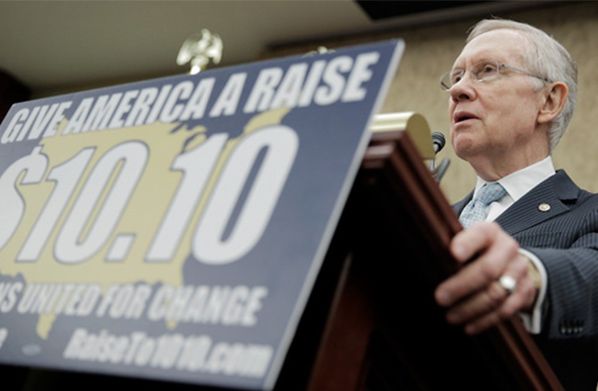Americans have learned first-hand an important economic lesson from their experience with ObamaCare. Proponents of the law had sold the minimum insurance benefit requirements as a gift to consumers. Your insurance requires a copay for contraception? Not anymore! You didn't have pediatric dental coverage? Nevermind that you have no children, you'll now have this coverage as well! Americans were told that the plans they had prior to ObamaCare that didn't include all these benefits really weren't good enough for them, and they'd be better off with the new government-improved package.
Then cancellation notices started coming in and Americans were socked with huge insurance cost increases, because—surprise, surprise—it's more expensive to provide ObamaCare's more comprehensive, required benefit package and those costs have to come from somewhere. Millions of Americans found that they missed the insurance deal that their government minders said wasn't good enough. The Administration ended up having to backtrack to encourage insurance companies to reissue those more affordable insurance contracts with fewer frills.
This lesson is worth lingering on as the Senate debates raising the federal minimum wage regulation today. This is another instance in which the government is telling Americans that it knows what is good for them—and what isn't good enough. Those supporting the new minimum wage law are saying that no employment contract that pays less than $10.10 should be acceptable for any American worker.
The teen-ager and new immigrant currently working their first job for $8 an hour at the local fast food joint are invited to assume that they will enjoy a 25 percent pay increase once this new law takes affect. Maybe. But they may also be about to receive a pink slip and find that there is no one willing to hire them for $10.10 an hour at all. How exactly does this help these people? How is robbing those with few skills of job opportunities compassionate?
The Left argues that there really isn't a relationship between higher employment cost and the availability of jobs. Yet common sense and sound economic analysis say otherwise. The Congressional Budget Office is the most recent to weigh in on this debate and estimated that the Democrats' proposed rate hike would result in 500,000 fewer jobs.
Proponents of the higher minimum wage have also argued that the rate increase will be a boon to women, since women account for about two-thirds of minimum wage workers. Yet this statistic shows that women are, in fact, far more vulnerable to the potential job loss caused by the new proposed regulation. Women also account for nearly two-thirds (about 63 percent) of part-time workers, and part-time workers are more likely to earn the minimum wage. As the minimum wage goes up, these women may find that their part-time jobs are cut and consolidated. That's bad news for those who had sought out a part time schedule to balance their work and family responsibilities.
Women are also concerned about the job prospects for their children. Right now the unemployment rate for African-American 16-19 year-olds is a staggering 36 percent (that's twice the rate as for white teens, which is still at a shockingly high 18 percent). Moms know that first jobs are far more valuable than the paycheck they bring home, but are critical to building a resume and the skills needed for future, better, higher-paying jobs.
Senate Democrats are sure to talk a lot today about how minimum wage workers are underpaid and are not getting what they deserve. But Americans need to keep in mind that these government regulation come with a price—and those paying the price will be the low-skilled workers who are robbed of the opportunity to get a job and begin their climb up the economic ladder.


